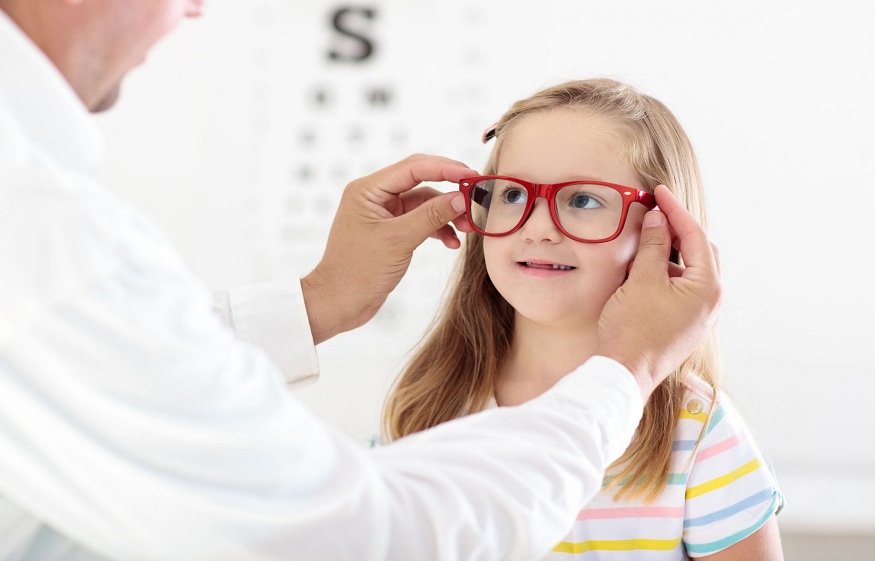Good eye health is essential for a child’s overall development and learning. Paediatric ophthalmology is a specialized branch of medicine focused on diagnosing, treating, and managing eye conditions in children. From routine eye exams to addressing common vision problems and eye diseases, paediatric ophthalmologists play a crucial role in ensuring optimal eye health in children.
In this blog post, we will explore the significance of paediatric ophthalmology and discuss the measures taken to promote good eye health in children.
Importance of Pediatric Eye Care
Regular eye care in childhood is crucial for several reasons. Children’s eyes are still developing, and any abnormalities or issues need to be detected early to prevent potential long-term vision problems. Additionally, good vision is essential for a child’s academic performance, coordination, and overall well-being. Paediatric ophthalmologists are specially trained to diagnose and treat eye conditions specific to children, providing comprehensive care for optimal visual health.
Common Eye Conditions in Children
Children can experience a range of eye conditions, some of which are unique to their age group. Common eye conditions in children include refractive errors (nearsightedness, farsightedness, astigmatism), amblyopia (lazy eye), strabismus (crossed or misaligned eyes), congenital cataracts, eye infections, and genetic eye disorders. Detecting and addressing these conditions early is crucial to ensure proper vision development.
Comprehensive Eye Exams
Comprehensive eye exams are an essential part of paediatric ophthalmology. These exams assess various aspects of a child’s visual health, including visual acuity, eye alignment, refractive errors, and overall eye health. Paediatric ophthalmologists use age-appropriate techniques and specialized tools to evaluate the eyes thoroughly. Regular eye exams in childhood help identify vision issues and eye conditions early, allowing for prompt intervention and treatment.
Vision Screening Programs
Vision screening programs play a significant role in identifying potential vision problems in children. These programs are often conducted in schools and community settings and involve simple, non-invasive tests to detect common vision issues. While vision screenings are valuable for initial assessment, they should be followed by comprehensive eye exams performed by paediatric ophthalmologists to ensure accurate diagnoses and appropriate management.
Correcting Refractive Errors
Refractive errors, such as nearsightedness, farsightedness, and astigmatism, are common in children. Paediatric ophthalmologists prescribe corrective measures, such as eyeglasses or contact lenses, to address these refractive errors. Properly prescribed and regularly updated corrective lenses not only improve vision but also promote healthy visual development in children.
Treating Amblyopia and Strabismus
Amblyopia, commonly known as lazy eye, and strabismus, which refers to crossed or misaligned eyes, are conditions that require early intervention for optimal treatment outcomes. Paediatric ophthalmologists employ various approaches to manage these conditions, including patching the stronger eye, using corrective lenses, and sometimes recommending surgery to realign the eyes. Early detection and treatment of amblyopia and strabismus are crucial for the best chances of restoring normal vision and binocular function.
Eye Safety and Protection
Promoting eye safety and protection is paramount in paediatric ophthalmology. Children should be encouraged to wear appropriate eye protection when engaging in sports or activities that pose a risk of eye injury. Additionally, protection from harmful UV rays through the use of sunglasses and wide-brimmed hats is crucial in maintaining good eye health.
Conclusion
Paediatric ophthalmology plays a vital role in ensuring good eye health in children. Through regular eye exams, early detection of eye conditions, and timely interventions, paediatric ophthalmologists help children achieve optimal visual function and prevent long-term vision problems. By prioritizing eye care and emphasizing eye safety measures, we can safeguard the precious gift of vision for our children, enabling them to thrive and excel in their personal and academic lives.


